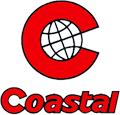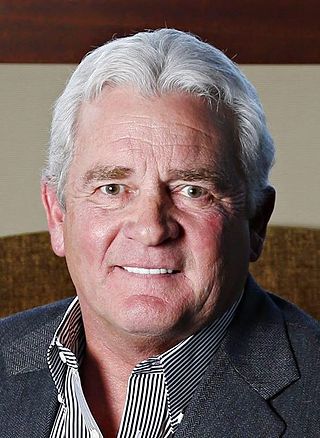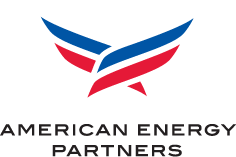
Sunoco LP is an American master limited partnership organized under Delaware state laws and headquartered in Dallas, Texas. Dating back to 1886, the company has transitioned from a vertically integrated energy company to a distributor of fuels. It was previously engaged in oil, natural gas exploration and production, refining, chemical manufacturing, and retail fuel sales, but divested these businesses.
Enbridge Inc. is a multinational pipeline and energy company headquartered in Calgary, Alberta, Canada. Enbridge owns and operates pipelines throughout Canada and the United States, transporting crude oil, natural gas, and natural gas liquids, and also generates renewable energy. Enbridge's pipeline system is the longest in North America and the largest oil export pipeline network in the world. Its crude oil system consists of 28,661 kilometres of pipelines. Its 38,300 kilometre natural gas pipeline system connects multiple Canadian provinces, several US states, and the Gulf of Mexico. The company was formed by Imperial Oil in 1949 as the Interprovincial Pipe Line Company Limited to transport Alberta oil to refineries. Over time, it has grown through acquisition of other existing pipeline companies and the expansion of their projects.
Oklahoma Gas & Electric Company is a regulated electric utility company that serves over 843,000 customers in Oklahoma and Arkansas, including 1.5 million people in the Oklahoma City Metropolitan Area. It is the leading subsidiary of OGE Energy Corp., with headquarters in downtown Oklahoma City. OGE Energy is also the former parent of Enogex Inc., a natural gas pipeline business which merged with CenterPoint Energy's midstream business to form Enable Midstream in 2013, in 2021 OGE and CenterPoint sold their general partnership in Enable Midstream to Energy Transfer. OGE Energy and its subsidiaries have about 3,100 employees.
Trunkline Pipeline is a natural gas pipeline system which brings gas from the Gulf coast of Texas and Louisiana through Mississippi, Arkansas, Tennessee, and Kentucky to deliver gas in Illinois and Indiana. It connects to the Henry Hub, Egan Hub, and Perryville Hub. The total length of the system is 3,059 miles (4,923 km) and its capacity is 1.5 billion cubic feet per day. It is operated by Trunkline Gas Company, a subsidiary of Energy Transfer Partners. Its FERC code is 30.

Kinder Morgan, Inc. is one of the largest energy infrastructure companies in North America. The company specializes in owning and controlling oil and gas pipelines and terminals.
Plains All American Pipeline, L.P. is a master limited partnership engaged in pipeline transport, marketing, and storage of liquefied petroleum gas and petroleum in the United States and Canada. Plains owns interests in 18,370 miles (29,560 km) of pipelines, storage capacity for about 75 million barrels of crude oil, 28 million barrels of NGLs, 68 billion cubic feet of natural gas, and 5 natural gas processing plants. The company is headquartered in the Allen Center in Downtown Houston, Texas. Plains is a publicly traded Master limited partnership. PAA owns an extensive network of pipeline transportation, terminalling, storage and gathering assets in key crude oil and NGL producing basins and transportation corridors at major market hubs in the United States and Canada.
Enterprise Products Partners L.P. is an American midstream natural gas and crude oil pipeline company with headquarters in Houston, Texas. It acquired GulfTerra in September 2004. The company ranked No. 105 in the 2018 Fortune 500 list of the largest United States corporations by total revenue. Dan Duncan was the majority owner until his death in 2010.
Oneok, Inc. is an American diversified corporation focused primarily on the natural gas industry, and headquartered in Tulsa, Oklahoma. The company is part of the Fortune 500 and S&P 500. Oneok was founded in 1906 as Oklahoma Natural Gas Company, but it changed its corporate name to Oneok in December 1980. It also owns major natural gas liquids (NGL) systems due to the 2005 acquisition of Koch Industries natural gas businesses.

Boardwalk Pipeline Partners, LP, which conducts business through its primary subsidiary Boardwalk Pipelines, LP and its subsidiaries, is an energy company based in Houston, Texas. It is a master limited partnership operating in the midstream portion of the natural gas and natural gas liquids (NGLs) industry, primarily providing transportation and storage for those commodities. Boardwalk owns approximately 14,365 miles (23,118 km) of natural gas and NGLs pipelines and underground storage caverns having an aggregate capacity of approximately 205 billion cubic feet (Bcf) of working natural gas and 24.0 million barrels of NGLs. Boardwalk's pipeline system originates in the Gulf Coast region, Oklahoma and Arkansas and extends north and east to the Midwestern states of Tennessee, Kentucky, Illinois, Indiana, and Ohio, and Boardwalk's NGLs pipeline and storage facilities are located in Louisiana and Texas.

SemGroup Corporation was a publicly-traded company engaged in natural gas, petroleum, and propane pipeline transport. It was organized in Delaware and headquartered in Tulsa, Oklahoma. In December 2019, the company was acquired by Energy Transfer LP.

NuStar Energy L.P. is a subsidiary of Sunoco LP, and formerly was a publicly traded master limited partnership. The company is one of the largest independent liquids terminal and pipeline operators in the nation. NuStar owns 8,700 miles of pipeline and 79 terminal and storage facilities that store and distribute crude oil, refined products and specialty liquids.

Coastal Corporation was a diversified energy and petroleum products company headquartered at 9 Greenway Plaza in Greenway Plaza, Houston, Texas. The company was founded in 1955 by Oscar Wyatt and incorporated in 1955 as Coastal States Gas Producing Company. It merged with the El Paso Corporation in 2001. As of 1999, Coastal was a Fortune 500 company with 13,300 employees and annual revenues of $8.2 billion.
Pembina Pipeline is a Canadian corporation that operates transportation and storage infrastructure delivering oil and natural gas to and from parts of Western Canada. Since 2003, storage has also included ethylene at one location. Western Canada is the source of all products transported by Pembina pipeline systems which include the Syncrude pipeline, Horizon pipeline, and Cheecham oilsands pipelines.

Kelcy Lee Warren is an American billionaire and the chairman and chief executive officer of Energy Transfer Partners.

American Energy Partners, LP, also known as AELP, was an American natural gas and oil company founded in April 2013 by Aubrey K. McClendon. The company managed affiliates responsible for natural shale gas and oil production and exploration in the United States, as well as management of assets, minerals, royalties and non-operated properties. It was headquartered in Oklahoma City, Oklahoma, and employed over 450 people as of August 2015. AELP announced on May 18, 2016, two months after McClendon's death, that it would end operations and close by the end of summer 2016.

The Dakota Access Pipeline Protests or the Standing Rock Protests, also known by the hashtag #NoDAPL, were a series of grassroots Native American protests against the construction of the Dakota Access Pipeline in the northern United States that began in April 2016. Protests ended on February 23, 2017 when National Guard and law enforcement officers evicted the last remaining protesters.

#NODAPL, also referred to as the Dakota Access Pipeline protests, is a Twitter hashtag and social media campaign for the struggle against the proposed and partially built Dakota Access Pipeline. The role social media played in this movement is so substantial that the movement itself is now often referred to by its hashtag: #NoDAPL. The hashtag reflected a grassroots campaign that began in early 2016 in reaction to the approved construction of the Dakota Access Pipeline in the northern United States. The Standing Rock Sioux and allied organizations took legal action aimed at stopping construction of the project, while youth from the reservation began a social media campaign which gradually evolved into a larger movement with dozens of associated hashtags. The campaign aimed to raise awareness on the threat of the pipeline on the sacred burial grounds as well as the quality of water in the area. In June 2021, a federal judge struck down the Standing Rock Sioux Tribe's lawsuit, but left the option of reopening the case should any prior orders be violated.
The Bayou Bridge Pipeline (BBP) is a 162.5-mile crude oil pipeline from Lake Charles, Louisiana to St. James, Louisiana by Bayou Bridge, LLC, a subsidiary of Energy Transfer Partners. Communities directly impacted by the pipeline voiced health, economic, and environmental concerns. They filed a lawsuit in opposition to the project and asked the Army Corps of Engineers for an Environmental Impact Statement. The Corps refused to do so and approved the project on 15 December 2017. Water protectors at L'eau Est La Vie camp consistently disrupted construction of the BBP for most of 2018, causing delays and millions of dollars in added cost to the project. They raised environmental justice and social justice issues and concerns about the pipeline's contribution to climate change. The pipeline was eventually completed in April 2019.

The Dakota Access Pipeline (DAPL) or Bakken pipeline is a 1,172-mile-long (1,886 km) underground pipeline in the United States that has the ability to transport up to 750,000 barrels of light sweet crude oil per day. It begins in the shale oil fields of the Bakken Formation in northwest North Dakota and continues through South Dakota and Iowa to an oil terminal near Patoka, Illinois. Together with the Energy Transfer Crude Oil Pipeline from Patoka to Nederland, Texas, it forms the Bakken system. The pipeline transports 40 percent of the oil produced in the Bakken region.
The city of Cushing in Oklahoma is a central hub within the United States and worldwide oil industry. It connects major pipelines within the United States and is the location where the oil futures contracts end up being delivered. It is the physical delivery point of West Texas Intermediate oil.










